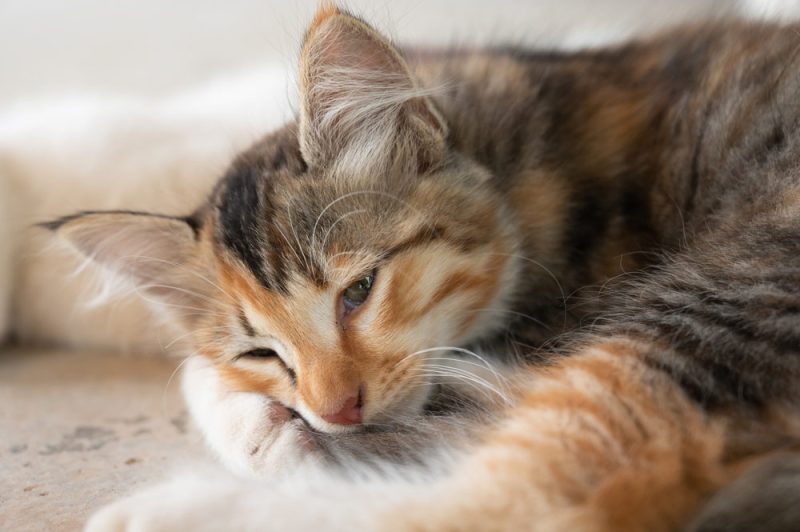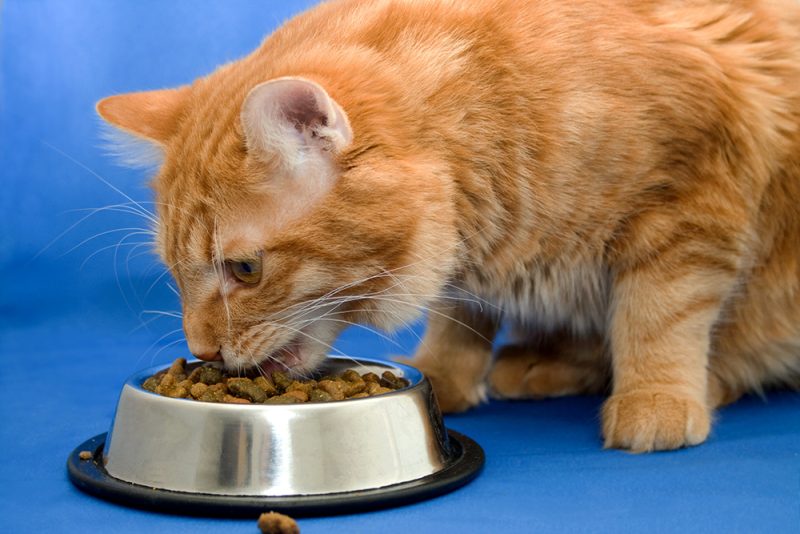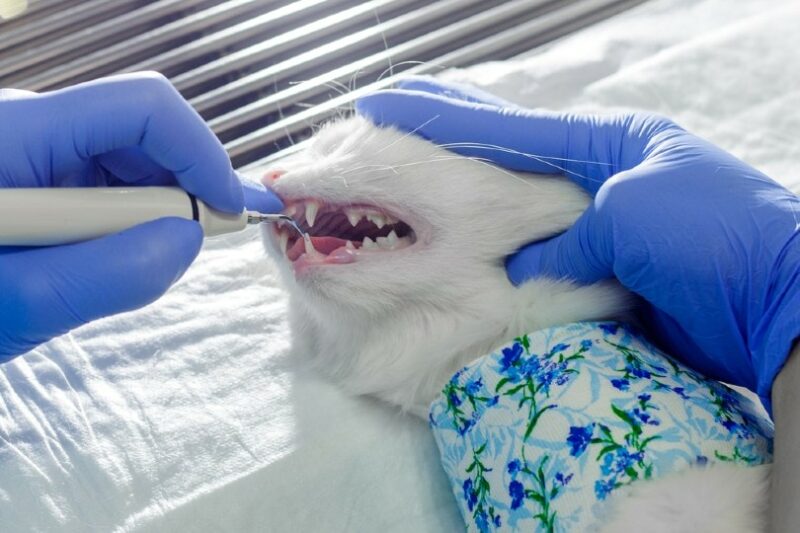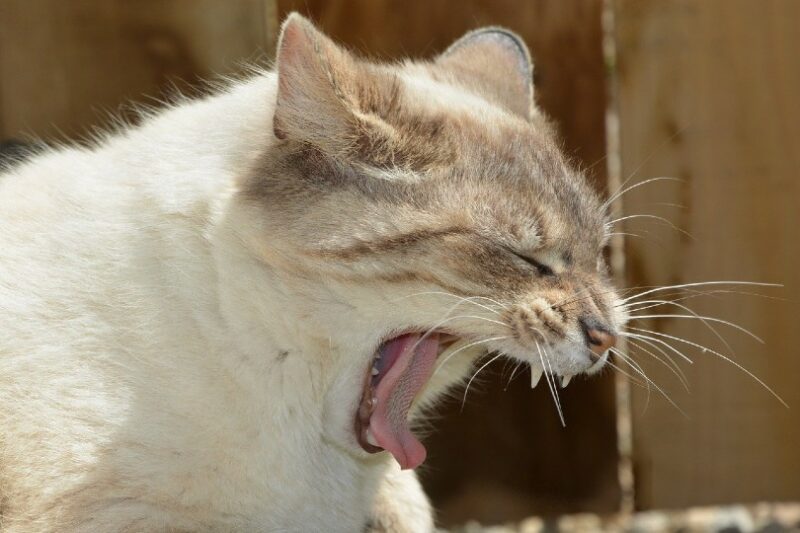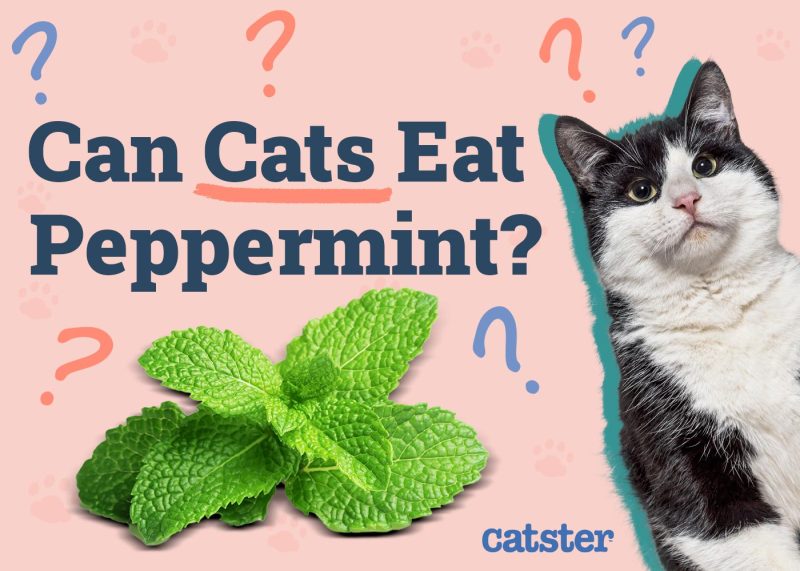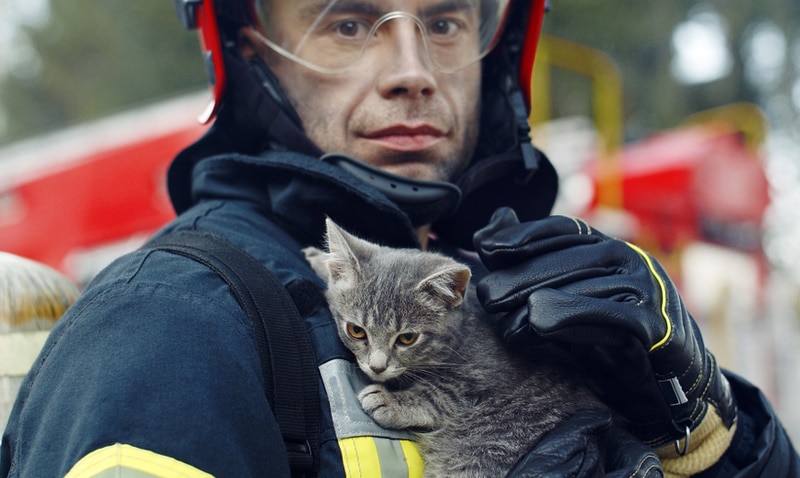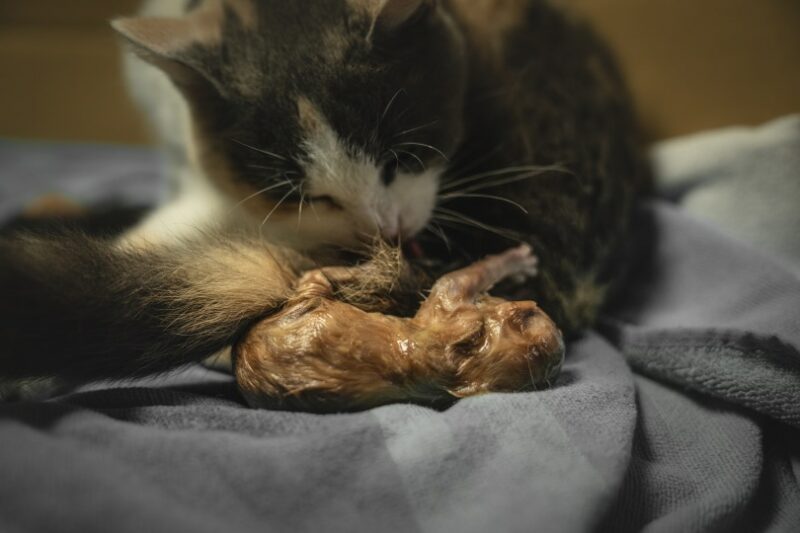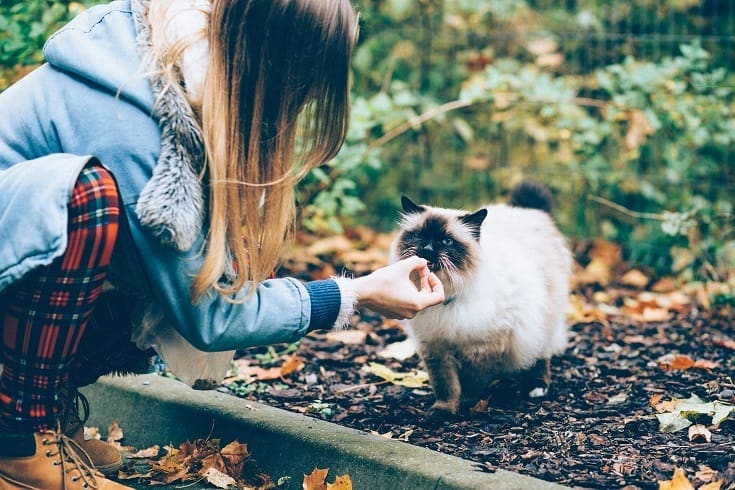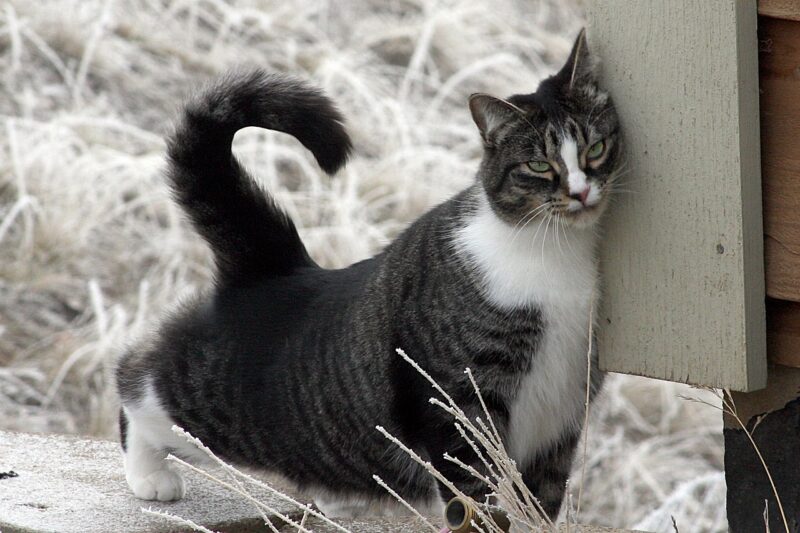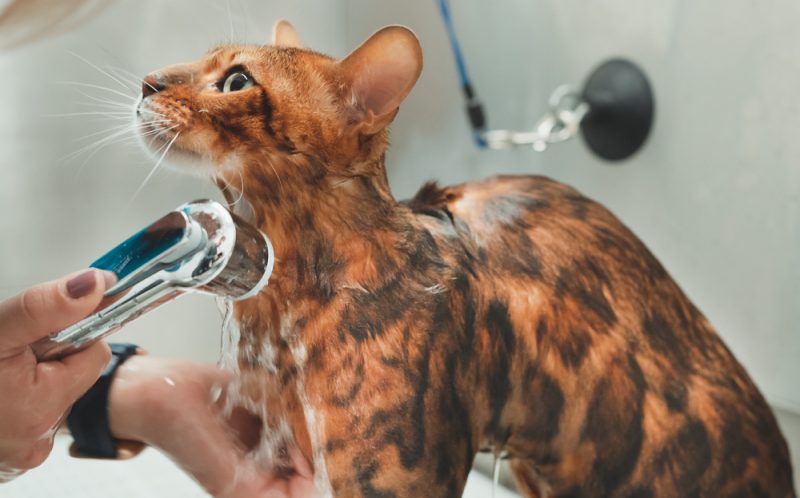In this article
View 4 More +When you look around the cat food aisles at the grocery store, you’ll notice that chicken tends to be a pretty common ingredient. Even in foods that don’t list chicken as the primary flavor on the front of the pack, it’s common to see chicken flavoring, chicken meal, or chicken liver somewhere in the ingredients list. So, a chicken allergy in cats is a tough one to negotiate, and sometimes it’s really difficult to diagnose.
If you think your cat could be allergic to chicken, you’ll find the following information particularly helpful.

What Is a Food Allergy?
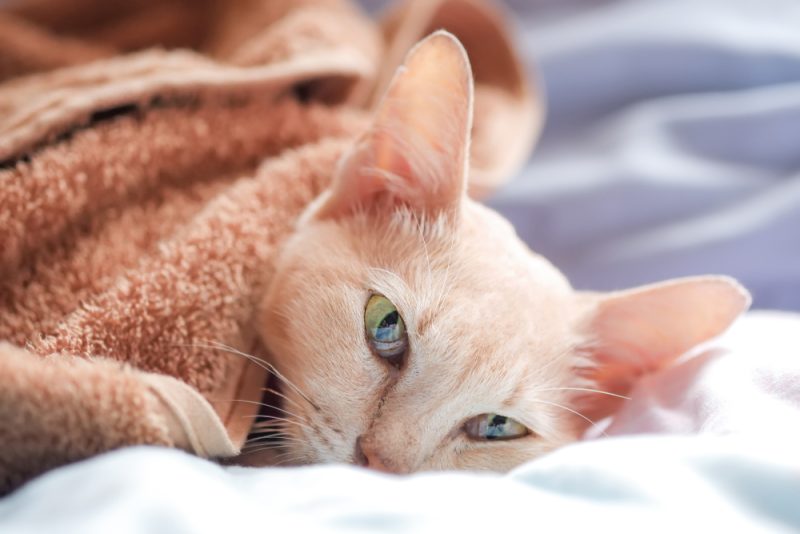
The terms “allergy” and “intolerance” are often used interchangeably, but that’s not technically accurate. Here’s the difference:
Food Intolerance: The gastrointestinal system is unable to properly digest or metabolize a certain food or ingredient, resulting in any or all of the following signs:
- Bloating
- Discomfort
- Vomiting
- Diarrhea
- Flatulence
- Gas
The clinical signs of food intolerance usually appear quite quickly after the ingestion of the ingredient in question and do not require previous exposure to the food.
Food Allergy: Food allergies involve the immune system, with the food/ingredient (most commonly a protein) causing a hypersensitivity reaction. Food allergies can also cause gastrointestinal signs, but we rarely see anaphylactic reactions (severe swelling, rapid heart rate, or breathing difficulties) to food in cats. In most cases, food allergies cause skin reactions, including:
- Pruritus (itchy skin)
- Red skin
- Bald patches (alopecia), usually from overgrooming
- Red, itchy ears
- Bumps, lumps, or scabs on the skin
The signs of a food allergy will not appear until at least the second time that ingredient is ingested, and it may even appear after months or years of eating the food without any problems.
The most common ingredients to cause food allergies are chicken, beef, eggs, and fish, which can make finding an appropriate diet for a cat with food allergies quite challenging! Even more challenging, however, is diagnosing a food allergy. This is where consultation with a veterinarian can help. Veterinarian can help you differentiate signs of food allergy from other potential health issues and give you some advice on your cat’s nutrition.
Need veterinary advice but can't get to the clinic? Catster recommends PangoVet, our online veterinary service. Talk to a vet online and get the answers and advice you need for your cat without having to leave your living room — all at an affordable price!


How Is a Chicken Allergy Diagnosed?
The first part of diagnosing a chicken allergy is figuring out that chicken is actually the problem. This will usually involve some trips to the vet to rule out other potential causes and treat any secondary problems like infection. Some of the conditions that can cause similar signs to food allergies include:
- External parasites (fleas, mites)
- Flea allergy dermatitis: A more severe immune reaction to flea saliva
- Environmental allergies
- Bacterial or fungal infections: These often occur alongside food allergies, invading inflamed, moist, or broken skin
There are a number of ways to test for a food allergy, including:
- Blood tests: These tests look at how the immune system reacts to allergens. These can be used to narrow down reactions to food or the environment, and they can look for specific ingredients or components (e.g., chicken, pollen, or dust). The reliability of this sort of testing is hotly debated, though.
- Intradermal testing: This includes injecting tiny amounts of allergen under the skin to look for reactions. This is more reliable than blood tests, but it requires sedation and can be expensive.
- Elimination diet trial: This includes feeding a diet with a single novel protein for 4 to 6 weeks. This is used to both determine if food is the problem and work out which ingredients are safe/unsafe. It is the cheapest option but can be a very slow process.
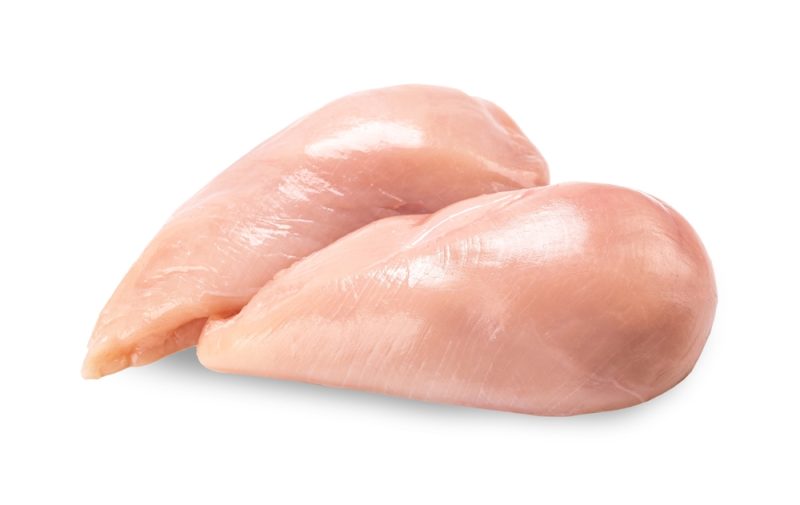
Using an Elimination Diet to Diagnose a Chicken Allergy
An elimination diet works by feeding your cat a food that contains a single novel protein. This means using a diet based on a single type of meat, and one that your cat has not eaten before. Because food allergies tend to develop over time with repeated exposure to that ingredient, using a new protein source means that your cat shouldn’t react to it.
As mentioned earlier, chicken is one of the most common ingredients found in cat food, even those that don’t mention it on the front of the pack, so it can be tricky to find a commercial food to use as an elimination diet. Another hurdle is that, for cats that have been fed a wide variety of different foods and ingredients, it can be difficult to find a novel protein. We also want to avoid the other proteins often implicated in food allergies (beef, eggs, and fish).
- Duck
- Turkey
- Venison
- Rabbit
Good options for an elimination diet are:
- Hydrolyzed cat food: Food that has undergone the process of hydrolyzation to break the proteins into tiny fragments, making them less likely to trigger an immune reaction.
- Raw food diet: Either a commercially prepared diet or using a single meat source. The usual precautions must be considered when starting your cat on a raw food diet.
- Fresh food diet: Similar principle to raw feeding but using a small number of ingredients that have been cooked, then frozen.
For an elimination diet trial to be successful, you must only feed your cat the selected food, with no other treats or tidbits for 4 to 6 weeks.
If your cat’s clinical signs improve during the food trial, we can conclude that food is the problem. Once we know that we’re dealing with a food allergy, we can carefully narrow down the culprits one by one.
Once your cat has been stable on the new food, you can slowly introduce one protein type at a time to find out which ingredient is the cause of the allergy. You should expect to see a reappearance of their clinical signs within a few days. If there is no reaction, wait at least 7 days before trying a different ingredient. If a food triggers an allergy, stop it and wait at least 14 days before trying any others.
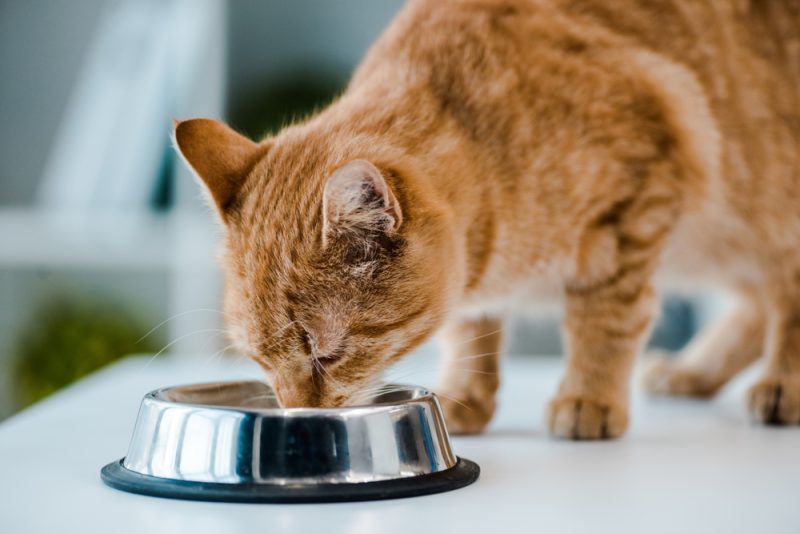

How Are Chicken Allergies Treated?
If we have worked out that our cat is allergic to chicken, the treatment is quite simple: no more chicken! Remember to check the ingredients list carefully for hidden chicken.
Cats that are allergic to chicken may also be allergic to other ingredients, so sticking to a high-quality diet with only one or two proteins and no preservatives, meat meals, or filler ingredients is the best way to minimize their risks. It is also sensible to stick to just one or two types of meat in case they develop further allergies and we need to find another novel protein.
Cats that have severe allergies or are allergic to a large number of ingredients may also need medical management of their condition. This may include oral medications or injections to suppress or modulate their immune reactions.
Can Food Allergies Be Prevented?
Allergies to certain foods and ingredients cannot be prevented, but there are ways to reduce the risk and severity of their allergic response.
By choosing a high-quality diet based on whole meat, and that contains no artificial preservatives or colors, you are minimizing the number of ingredients that could trigger an allergic reaction. Although offering a wide variety of flavors to your cat might seem like a good idea, it’s actually worth limiting the number of ingredients to just a few, as this means there are far more options to explore if your cat does develop a food allergy.

Final Thoughts
Having a cat that is allergic to chicken may seem like a huge problem, but it’s actually not a big deal. Getting to the bottom of what has been causing their clinical signs is certainly the most painful part, and once we know what ingredient is the culprit, it is easy to find a diet that will suit their needs. Remember to check the back of the pack for any hidden chicken ingredients, and that a shorter ingredients list equals higher quality food with a lower allergy risk.
Featured Image Credit: Kginger, Shutterstock
